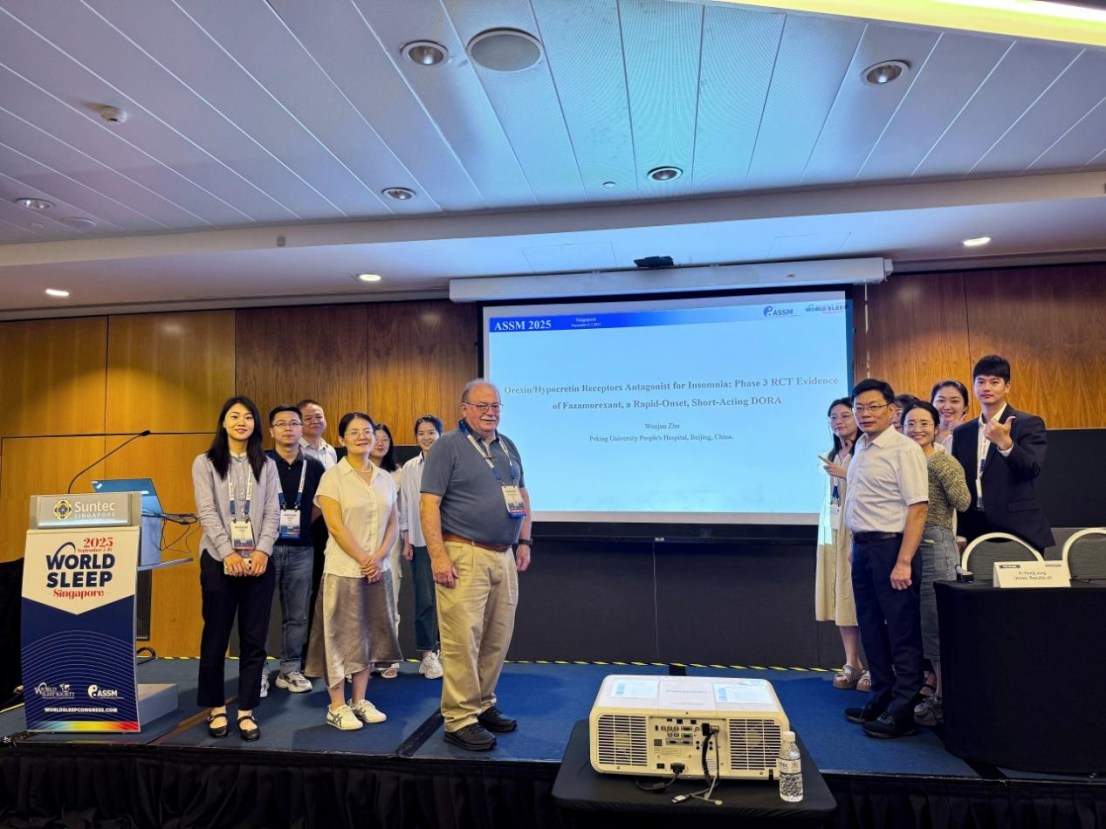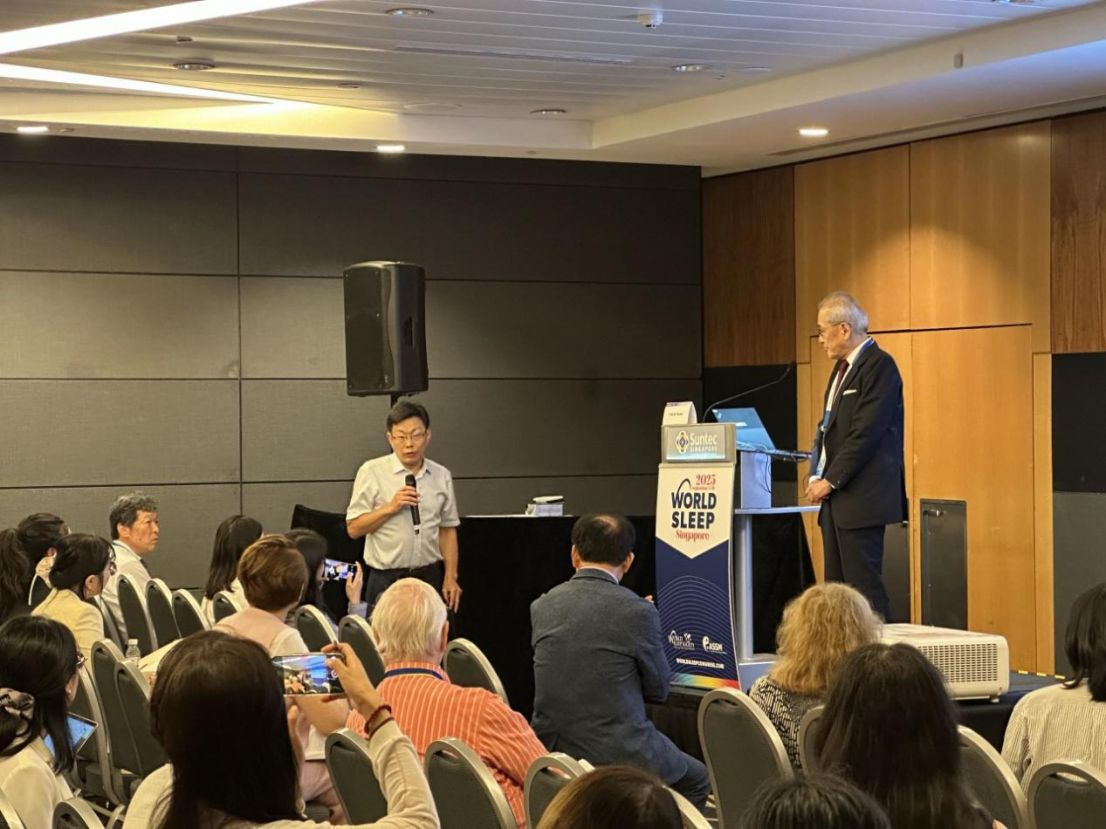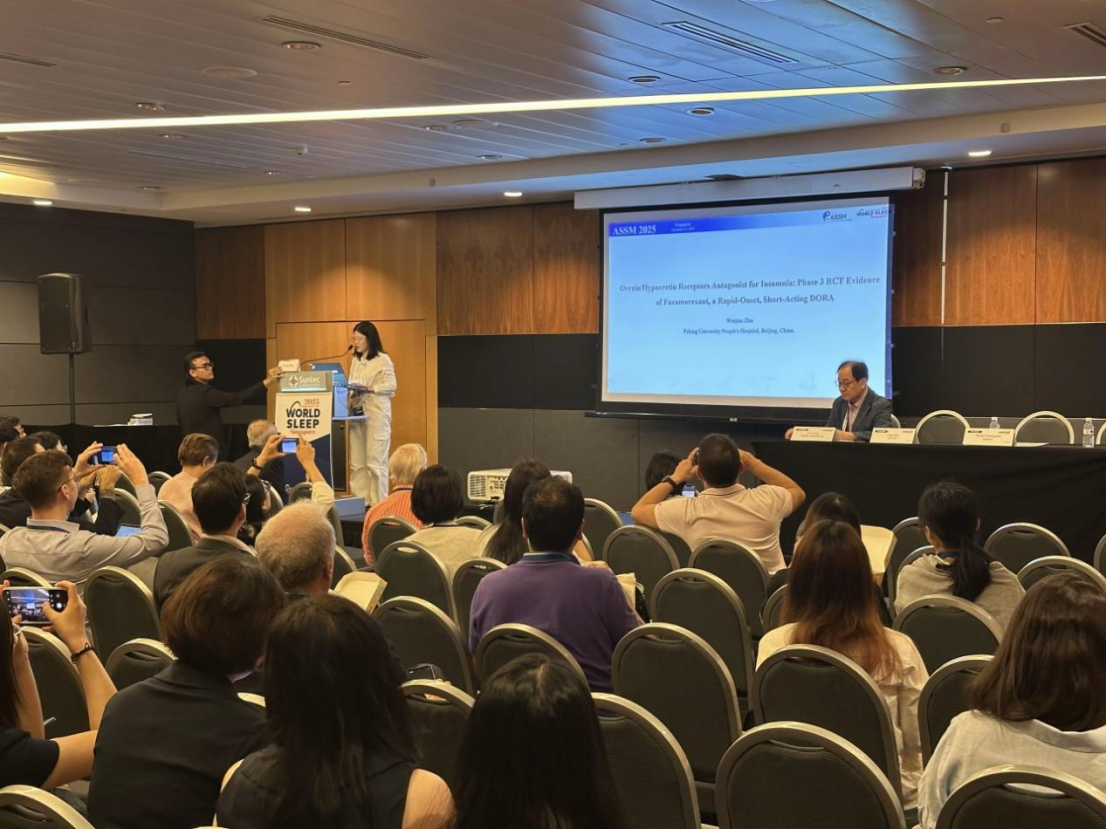From September 6 to 10, 2025, the World Sleep 2025 Congress and 2025 Annual Meeting of the Asian Sleep Society (ASSM 2025) took place in Singapore. At the event, Yangtze River Pharmaceutical Group (the Group) unveiled the Phase III clinical trial results of Fazamorexant (research code: YZJ-1139), an innovative Class 1 anti-insomnia drug it developed. As an orexin dual receptor antagonist (DORA), the results were presented for the first time globally, with the study abstract displayed at the conference’s poster section, attracting significant attention.

On September 6, at the thematic session "Orexin/Hypocretin System: Clinical Use", Prof. Han Fang (Secretary-General of the World Sleep Society, Peking University People’s Hospital) and Prof. Seung-Chul Hong (President of the Korean Sleep Research Society) co-chaired the session. Prof. Takashi Kanbayashi (International Institute for Integrative Sleep Medicine, University of Tsukuba, Japan), Prof. Yuichi Inoue (President of the Asian Sleep Society), and Postdoctoral Fellow Zhu Wenjun (Peking University People’s Hospital) were invited to deliver academic reports. At the session, Zhu Wenjun gave a presentation titled "Orexin/Hypocretin Receptors Antagonist for Insomnia: Phase Ⅲ RCT Evidence of Fazamorexant, a Rapid-Onset, Short-Acting DORA", systematically presenting and interpreting the Phase Ⅲ clinical data of Fazamorexant. The results showed significant advantages in the treatment of adult patients with insomnia.

From the perspective of efficacy, Fazamorexant has a rapid onset of action. After 14 days of treatment, both the objective sleep parameters monitored by polysomnography (PSG) and the subjective sleep indicators recorded in patients’ sleep diaries were significantly improved. Meanwhile, the long-term efficacy of the drug has also been fully verified, and the efficacy was still effectively maintained after 6 months of continuous medication. In terms of the magnitude of improvement, Fazamorexant showed more significant numerical improvement effects in key indicators such as shortening sleep onset latency, improving nighttime awakenings and enhancing sleep efficiency, compared with the published clinical data of other orexin dual receptor antagonists (DORAs). In terms of safety and tolerability, the rate of treatment discontinuation due to adverse events in the Phase Ⅲ study of Fazamorexant was only 0.6%, and no rebound insomnia or withdrawal symptoms occurred after drug discontinuation, which fully reflects its good medication safety and tolerability.
In the discussion session of the conference, Professor Han Fang pointed out that as a rapid-onset, short-half-life DORA drug, Fazamorexant can not only meet the treatment needs of patients with difficulty falling asleep, but also does not affect daytime function. For people with difficulty maintaining nighttime sleep, even a new medication strategy of "taking medicine twice a night" can be explored, which provides a new path for individualized precision treatment. The on-site communication atmosphere was warm, and this view was widely recognized by the participating scholars.
After the conference, Professor Emmanuel Mignot, who won the "Breakthrough Prize in Science" in 2023, is a member of the U.S. National Academy of Sciences and Director of the Stanford Center for Sleep Sciences and Medicine. He showed a strong interest in Fazamorexant, fully affirmed the clinical advantages brought by its short half-life, and further expressed his willingness to carry out scientific research cooperation with the Group. In addition, many scholars also visited the booth and conducted in-depth exchanges on the research details and clinical application prospects of Fazamorexant.
The World Sleep Congress is the highest-level academic event in the field of global sleep medicine, gathering top international experts and scholars in this field. The successful appearance of the Phase Ⅲ clinical research results of Fazamorexant on the international academic stage not only reflects the Group’s R&D strength and innovation level in the field of sleep disorder treatment, but also marks an important breakthrough of China’s original innovative drugs on the international academic stage, with its international influence continuously improving. In the next step, the Group will continue to promote the subsequent clinical development and industrialization process of Fazamorexant, and provide safer and more effective treatment options for insomnia patients around the world with innovative achievements, so as to help improve the level of human sleep health and quality of life.

